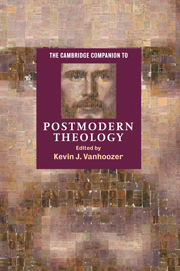13 - The human person
from Part 2 - Christian doctrine in postmodern perspective
Published online by Cambridge University Press: 28 May 2006
Summary
INTRODUCTION
The task of Christian theological anthropology is to depict evangelical (that is, Gospel-constituted) humanism. It aims to display the vision of human identity and flourishing which is ingredient within the Gospel's announcement that, in the being, action, and speech of Jesus Christ, the crucified who is now alive and present in the Spirit's power, the good purposes of God the Father for his human creation are established and their completion is promised. Christian theological anthropology offers a portrayal of the nature and destiny of humankind by explicating the Gospel's disclosure of the works and ways of the triune God.
Such claims, for all their loveliness, are culturally marginal. They are largely ignored, and occasionally repudiated, outside the sphere of the Christian confession; where they still retain profile, it is often only in crude versions. Because a Gospel-directed account of the human can thus claim almost no public self-evidence, the portrayal of an evangelical humanism of necessity involves Christian theological anthropology in a dispute about what constitutes “the humane.” This chapter addresses one particular focus of the dispute: the relation of Christian theological anthropology to deconstructive postmodernism.
- Type
- Chapter
- Information
- The Cambridge Companion to Postmodern Theology , pp. 219 - 234Publisher: Cambridge University PressPrint publication year: 2003
- 2
- Cited by



